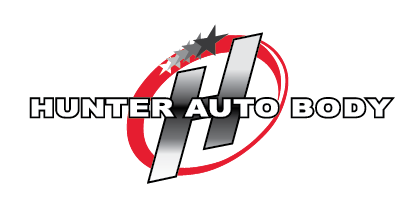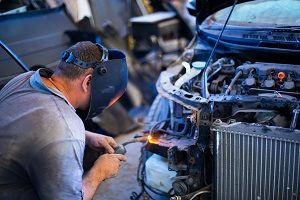If you look at your repair estimate and see the line item “destructive weld testing,” you might not know exactly what that means and what that involves. You may honestly questions seeing the word “destructive” and think that doesn’t sound like it’s something you would want in relation to getting your car fixed.
When you find yourself in need of collision repair, deciding on a auto body shop usually relies heavily on how much you can trust them and their technicians. Do they know what they are doing? Will they repair my car safely without cutting corners to save time or money?
Unfortunately, some St. Louis shops will cut corners especially when it comes to repairs involving welding. Majority of the vehicles in need of auto body repair will require some welding. Most of us wouldn’t consider questioning if a technician is skilled enough. However, not all St. Louis repair technicians will follow the tedious processes and skip the important step called “destructive weld testing”. The actual setup process of the welder and performance of the destructive weld test are two separate processes that are known to take a long time. “Each welding machine manufacturer may have its own unique configurations and setup processes” (CCC P-pages) and the shop may have more than one brand of welder being shared among the staff.
What is destructive weld testing and why do you need it?
Every car part in your car is built with differing metals which sometimes can change from make and model or even from one year to the next. Some have steel, others have aluminum and some utilize both metals which react differently to heat. A quality shop will have their technicians research the manufacturer’s requirements about how to weld those parts based on the type of metal they are. They should do this through a destructive weld test, where the technician will take some metal from the damaged parts removed from the vehicle and make a few test welds. As part of the test, they will perform both a “peel test” and a “twist test” where they will make sure the welds hold even with applying pressure. Once the technician is satisfied the weld is safe, they can apply the same technique to your car’s new parts knowing that the welder is set up correctly.
So, what does that mean for your car? In situations where no destructive weld testing is performed, your vehicle may be unsafely welded and no longer maintain its structural integrity if the incorrect welding technique was used. Every vehicle has its own unique variables that can change the type of welding repair so its imperative to take the time to perform testing and research on every single repair.
Besides the fact that destructive weld testing is time-consuming, it’s also a service that is “not-included procedure in all three estimating systems…” (Repairer Driven News). A less skilled estimator may not even know to put it as a line item on the estimate, and a high production shop or larger corporate chain may not include it as a way to cut costs for an insurer.
Destructive weld testing isn’t just limited to spot welding or MAG plug welding. Another common bonding procedure is known as “weld bonding”, which involves the use of super-strong adhesives instead of melting metal to join two panels. Just like welding, adhesive weld bonding should also undergo a destructive weld test to ensure that the adhesive is correct and properly mixed.
This is why it’s important to question your local body shop on their procedures and advocate to have destructive weld testing done along with a number of other manufacturer recommendations. When an auto repair shop takes the time to follow these recommended procedures, it means you will receive a complete and safe repair no matter how time consumer or costly it may be. At Hunter Auto Body, we always perform destructive weld testing before we even touch your vehicle to make sure you have the best repair possible. We follow OEM repair procedures and never have your car be the test subject for welding.
We look forward to hearing from you!





